Dartmouth student uses art to shift perceptions of addiction
|
Published: 03-26-2024 5:01 PM
Modified: 03-27-2024 11:11 AM |
LEBANON — In 2013, Alastair Huntley was struggling with depression and an overreliance on medication after being prescribed opioids after surgery for a knee injury, which left him in pain. Then a student at Norwich University in Northfield, Vt., Huntley’s dream of being commissioned into the Army ROTC evaporated because of the knee impairment. Spiraling downward, he attempted suicide while visiting Cape Cod and was involuntarily committed to a mental health and substance misuse program at a hospital in Hyannis.
While in the five-day program Huntley was particularly struck by a young woman who described a life of heroin use with blunt candor. Her story stayed with Huntley as he went back to Norwich, where he received a degree as an NREMT (National Registry of Emergency Medical Technicians).
Now 35, he is studying creative writing in the Master of Arts in Liberal Studies, or MALS, program at Dartmouth College and works for the college’s Health Services. Huntley had been questioning whether the arts — in his case, writing and film — could be a more effective educational approach to the national crisis of substance misuse than traditional public awareness campaigns.
“I wanted to find a way of really weaving together public health with the arts,” he said.
Over the past few years, Huntley has developed, with Miami artist Samuel Rafa Garcia, a large-scale series of storyboarded panels, with sound effects and actor voice-overs, which draw on and embellish that young woman’s life (here called “Danielle”).
There will be a public presentation of “Survival Story: An Artistic Approach to Harm Reduction” on Thursday from 5 to 7 p.m. in the TLC Family Resource Center, at 24 Hanover St., in Lebanon. Huntley volunteers at both the TLC Family Resource Center and the HIV/HCV Resource Center, also in Lebanon.
“The production’s mission, the story’s mission is, how can we better address opioid substance misuse?” Huntley said.
How can public perception shift to viewing substance misuse as a major public health issue rather than as simply a moral failing, he said.
Article continues after...
Yesterday's Most Read Articles
 With Concord down to one movie theater, is there a future to cinema-going?
With Concord down to one movie theater, is there a future to cinema-going?
 “It’s beautiful” – Eight people experiencing homelessness to move into Pleasant Street apartments
“It’s beautiful” – Eight people experiencing homelessness to move into Pleasant Street apartments
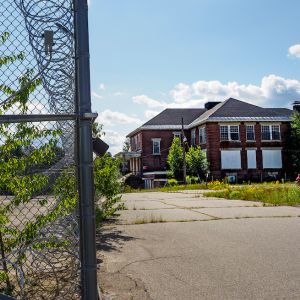 No deal. Laconia buyer misses deadline, state is out $21.5 million.
No deal. Laconia buyer misses deadline, state is out $21.5 million.
 Quickly extinguished fire leaves Concord man in critical condition
Quickly extinguished fire leaves Concord man in critical condition
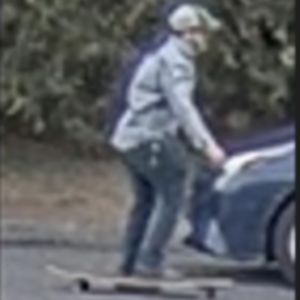 Concord police ask for help in identifying person of interest in incidents of cars being keyed during Republican Party event
Concord police ask for help in identifying person of interest in incidents of cars being keyed during Republican Party event
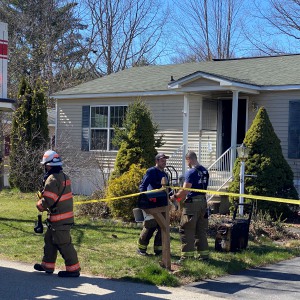 Update: Victim identified in Lantern Lane fire in Concord
Update: Victim identified in Lantern Lane fire in Concord
The presentation will be followed by a Q&A, and training in how to recognize the signs of an overdose and how to use the overdose reversal medication naloxone, also known by the brand name Narcan. There will be subsequent presentations at the TLC in Lebanon on May 30, July 25 and Sept. 26.
The project, which was funded in part by a New Hampshire Arts in Health grant for $12,000, as well as other charitable Vermont and New Hampshire foundations, is three minutes long and it’s a kind of mock-up for what could be a longer film, which Huntley hopes to create at some point. Both the TLC Learning Center and the HIV/HCV Resource Center provided in-kind support.
Huntley, who grew up in Amherst and Nashua, N.H., and now lives in Sunapee, was fortunate in that he had a reserve of people around him to help him get off opioids and then rebuild his life, a process which took about six years.
“You go through a battle of trying to piece yourself together,” he said.
It wasn’t lost on him during in-patient treatment in Hyannis that, although substance misuse disorders cut across class lines, there were stark disparities in “how care was delivered and how individuals received care, namely determined by socio-economic factors,” Huntley said.
He recalled thinking that for the young woman to return to a level of normalcy seemed like an “insurmountable task with her home life and financial situation.”
While the TLC Learning Center has hosted writing groups, this is the first time it has exhibited a project of this scale, said Dan Wargo, the director of TLC’s recovery program.
“The stories Alastair creates really hit home,” raising awareness of both the issue and the harm reduction strategies available to the wider community, Wargo said.
“The storyboard itself is powerful and a way to get people talking about substance misuse disorder and trauma,” said Laura Byrne, executive director of the HIV/HCV Resource Center.
“So many people are struggling in (the Upper Valley),” Byrne said.
Last year, their clients reported to them 320 overdose reversals with naloxone, which is probably an undercount because people are often reluctant to disclose such information, she said.
By the end of November, 2023, according to the Vermont Department of Health, 212 Vermont residents had died of opioid-related accidental and undetermined deaths, a number higher than the three-year average through November. In New Hampshire, according to the Office of Chief Medical Examiner, the number of overdose deaths in 2023 was 422, a decline from the 2022 number of 487 overdose fatalities.
There’s a case to be made, Byrne said, for training a wide range of people in carrying and administering naloxone when needed. It is not a drug, but an overdose reversal medication, she said.
“You don’t know when you’re going to encounter someone (overdosing). One of our clients was in a fast food restaurant, someone was overdosing in a bathroom and (the client) was able to reverse the overdose.”
There is no liability involved, and anyone can administer naloxone, Byrne said.
“We’ve got to work harder to let people know there is help — and we can help,” Wargo said.
Huntley’s ultimate objective is to go into medicine. In addition to his job and volunteer work, he also is a pre-med student doing online course work at the University of New England in Maine. He hopes that “Survival Story: An Artistic Approach to Harm Reduction” will reach beyond the circle of health care professionals working in the field of substance misuse.
While the general public is aware that opioid misuse and overdoses are a public health crisis, Huntley wants to target, through the visual arts, people who “might not know about harm reduction or Narcan training.”
If more people can recognize the signs of an overdose and know how to administer naloxone, that could help keep people alive by “enabling rapid responses to overdoses, increasing the accessibility of life-saving medication, and empowering communities to protect their members,” Huntley wrote in an email. It’s similar, he said, to placing defibrillators in public places in case someone goes into cardiac arrest.
“That’s the main takeaway,” Huntley said.
The National Suicide Prevention Lifeline can be reached 24/7 at 988 or 1-800-273-8255. The New Hampshire Rapid Response Access Point, the local mobile crisis response clinician teams for people in the state, can be reached by phone at 833-710-6477 or online at NH988.com.
Nicola Smith can be reached at mail@nicolasmith.org.

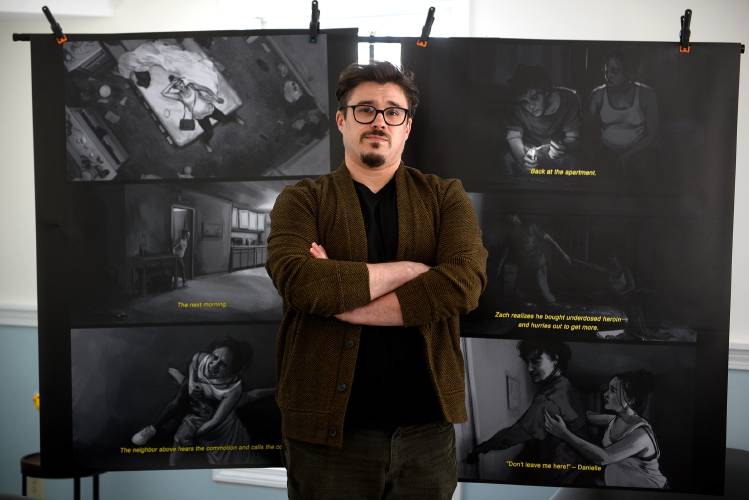
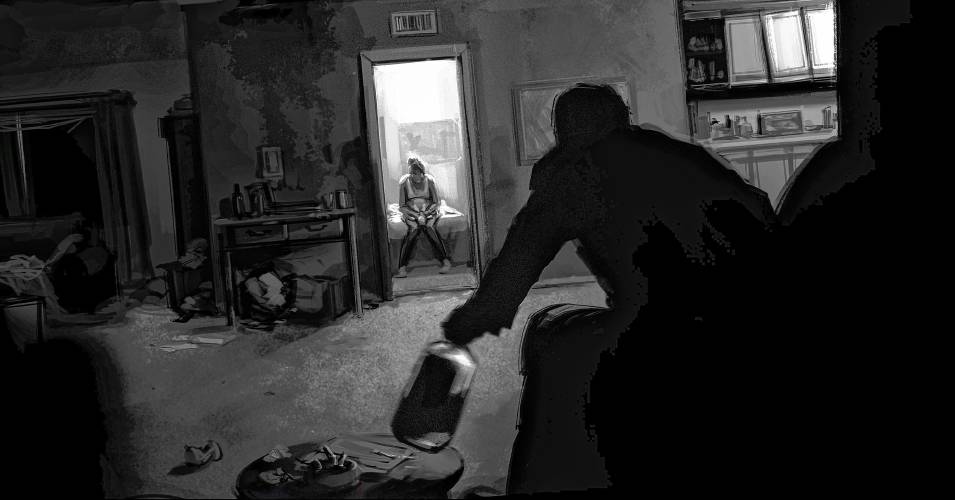

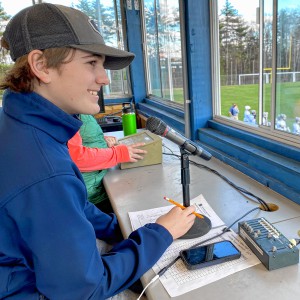 Voice of the Pride: Merrimack Valley sophomore Nick Gelinas never misses a game
Voice of the Pride: Merrimack Valley sophomore Nick Gelinas never misses a game With less than three months left, Concord Casino hasn’t found a buyer
With less than three months left, Concord Casino hasn’t found a buyer Kearsarge Middle School drone team headed to West Virginia competition
Kearsarge Middle School drone team headed to West Virginia competition Phenix Hall, Christ the King food pantry, rail trail on Concord planning board’s agenda
Phenix Hall, Christ the King food pantry, rail trail on Concord planning board’s agenda
